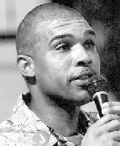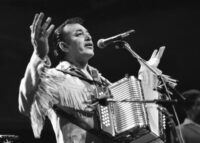Guy Jarreau, a Napa Community College student, was shot and killed by a Vallejo police officer in 2010.
By Loretta Carr
The distress of watching Minneapolis resident George Floyd’s neck being crushed by a policeman’s knee as he begs to breathe is palpable.
The indignation at the unprovoked shooting of jogger Ahmaud Arbery by a father and son in Georgia is furious.
The horror of EMT Breonna Taylor’s killing by Louisville police officers in her own home is indefensible.
What did these three victims have in common? They were targets of unsubstantiated suspicion and aggression amplified because they were African Americans.
In this year of plague, scarcity, and social unrest, we have already been so pummeled by the health risks and restrictions of the Coronavirus and its subsequent financial effects that we may view their deaths as events occurring somewhere else, far away from our sheltered and relatively safe community. However, these are only the latest killings brought to our attention because of cell phone cameras or brave witnesses. There are countless other travesties not featured on CNN.
When something hits close to home, it means that it is happening to someone else but it strikes a nerve in you because you identify with it so closely. I didn’t know George Floyd or Ahmaud Arbery or Breonna Taylor, but their killings have made a very sad loss resurface.
I am painfully reminded of the killing of one of my Napa Valley College students in 2010. I was tutoring in the school’s Writing Center when a polite young man from New Orleans by the name of Guy Jarreau shared his writing with me. Writing is a very personal endeavor, so it was always a privilege to read the stories, opinions, and dreams of these individuals striving to learn and express themselves.
He had left New Orleans, settled in the North Bay, and by all accounts, was an active, contributing member of his community. Besides attending classes at Napa Valley College studying towards his degree in Human Services, he also worked as a Teachers Aide at the college’s Child Development Center. That, in itself, tells a lot about his heart.
He joined the school’s UMOJA program, described as a “resource dedicated to enhancing the cultural and educational experiences of African American and other students.”
Outside of school, Guy served as a mentor and role model for younger African Americans as a Peace Keeper for the Office of Neighborhood Safety in the City of Richmond. He was proud to be a Street Soldier.
His artistic side was expressed through film making, which is what he was doing when his life was cut short. Ironically, he was filming an anti-crime music video with a group of teens outside a tattoo shop in Vallejo when he was shot and killed by the Vallejo police. The name of the film was to be I’m Sick of Living Like This.
Versions of the incident vary, but some who were there say the police were called simply because a group of young African Americans was congregated, perhaps resembling a gang. The police report claims that Guy was holding a gun, so they shot him in the chest. Witnesses say he was holding a blue cup of water.
I didn’t learn about his death until a few days later at school. One of the English professors came into the Writing Center, her expression deeply upset. “Did you hear what happened to Guy?”
I got to meet his mother who flew out from New Orleans to pursue an investigation into his killing. She had sought legal representation from Bay Area attorney John Burris who has represented families in a number of killings committed by Vallejo police. She was understandably distraught and unable to accept that her gentle, church-going, God-fearing son had been so unmercifully killed. I shared with her the talent and spirit that I had witnessed in Guy. The officer who fired the shot that killed Guy Jarreau, Lt. Kent Tribble, was eventually cleared, justifiable homicide. I believe he is still on the Vallejo police force.
As a small measure of closure, I read a piece he had written to an audience of students and faculty at the Writing Center’s Open House a few months later. It was hard to get through as my throat tightened and my eyes blurred from tears. His piece was entitled, “Success.”
Success can mean a lot of different things. Success can be wealth, fame, or a position. It can also be something that turns out well for people. Success really depends on the person, their situation, or their upbringing. My life to me is a success, growing up the way I did.
He went on to describe how his father, grandfather, and mother were all shot when he was five years old, his father and grandfather dying as a result. As a youth, he suffered years of continuous beatings and ended up with the wrong crowd, using drugs and alcohol. After being helped by a New Orleans judge, he turned his life around and used his experiences to counsel young people. His story continued.
Now I’m a teacher’s aide and a mentor. I am also on the radio station sometimes because I work with troubled kids in tough neighborhoods for the City of Richmond. I even fly to different cities to talk with groups of kids about living healthy and having healthy relationships no matter what hand you are dealt in life. My life story is a rags to riches story and who would have ever thought? That’s why I’m a success.
So when I am faced with what happened to George Floyd and Ahmaud Arbury and Breonna Taylor, I remember what happened to Guy Jarreau. I grieve his loss, his potential, and that of all the others I did not have the privilege of knowing.





Beautifully written amiga!